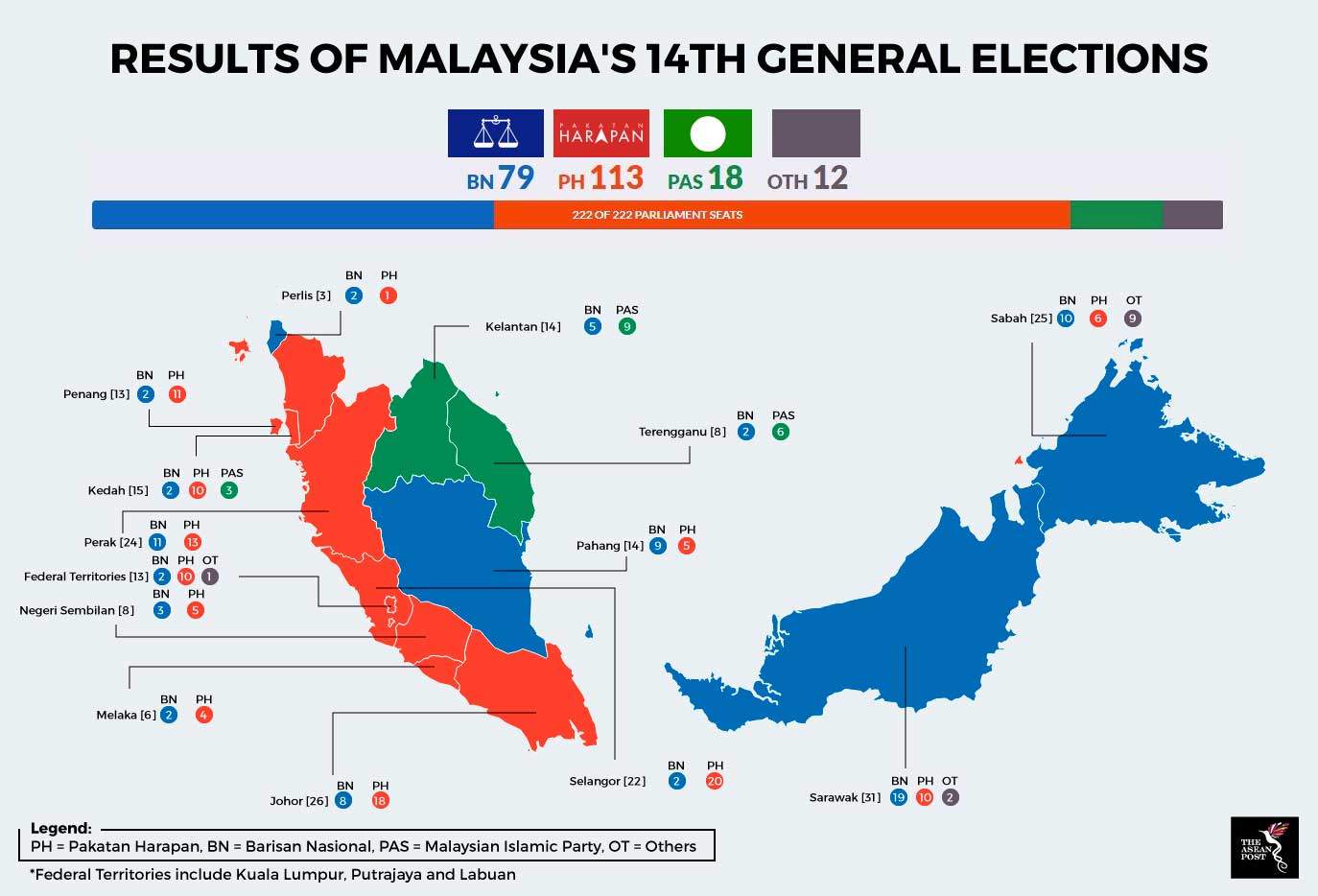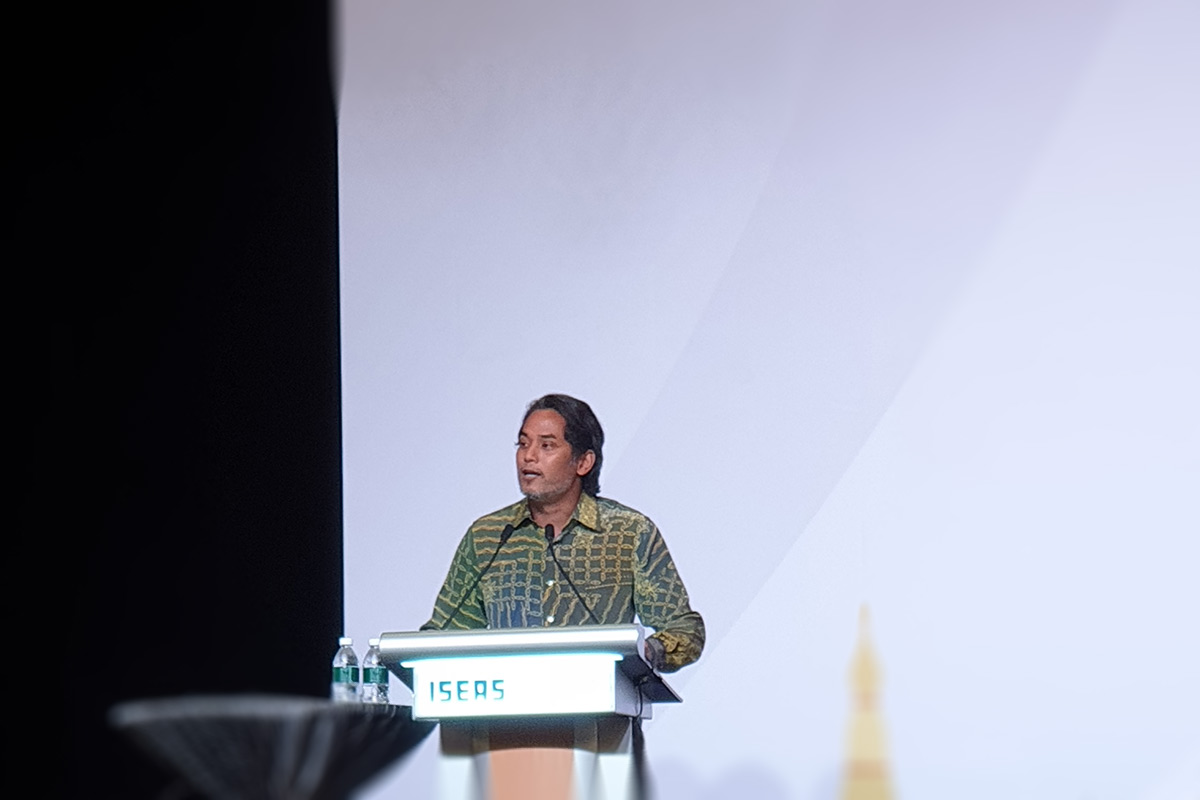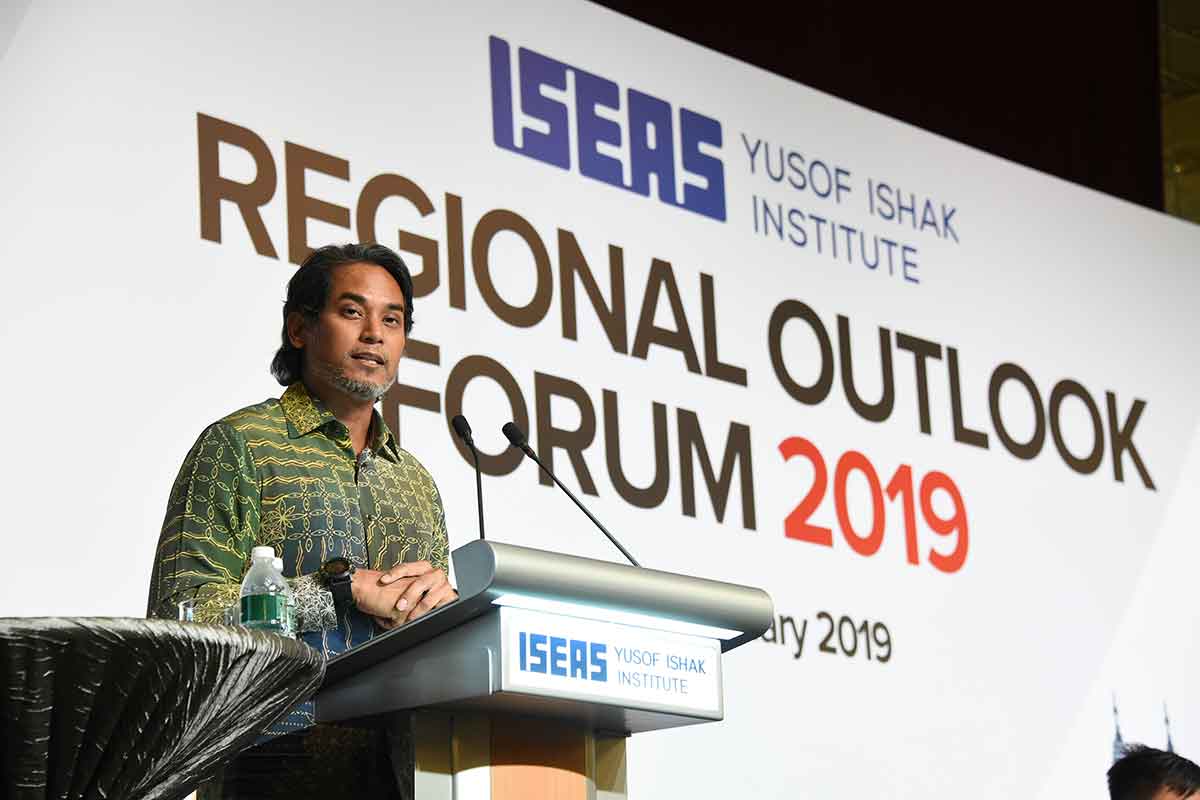Malaysia’s landmark election on 9 May 2018 saw the National Front (Barisan Nasional) lose its grip on power for the first time in 60 years. The media – both foreign and local – were abuzz with news of the defeat at the hands of the Alliance of Hope (Pakatan Harapan) coalition.
Many local politicians were cast under the spotlight and this was not limited to former prime minister Najib Razak and new Prime Minister Mahathir Mohamad. One man, however, who seemed to rise above the rubble that was once the National Front is ex-Youth and Sports Minister Khairy Jamaluddin Abu Bakar, also known as KJ.
The National Front’s fall from grace was particularly hard on the United Malays National Organisation (UMNO) which saw its former president Najib Razak relinquishing his position as party president. This ultimately led to a power struggle for the party’s top spot between Khairy, UMNO vice president Ahmad Zahid Hamidi, and UMNO veteran Razaleigh Hamzah. While Khairy ultimately lost that race, the party’s presidential elections led to one particularly interesting report which came out a few days before the party election.
Titled “Is Khairy the reformer that UMNO needs?”, the report quoted several political pundits who seemed divided over whether Khairy is the right man to reform UMNO. A reform which, following the party’s fall, several political pundits agreed UMNO was in dire need of.
The Oxford-graduate may have missed the opportunity of becoming UMNO president, but that has apparently not stopped him from stealing the limelight as one of the most vocal and critical members of the new opposition in Malaysia.
His most recent thought-provoking insights came on Wednesday in Singapore where he attended the annual one-day Regional Outlook Forum, organised by the ISEAS-Yusof Ishak Institute.
Comments Khairy himself made at the forum yet again brought to mind whether he does indeed have what it takes to reform his party.

Source: Various sources
UMNO’s reform
Perhaps one of Khairy’s most controversial proposals, and one he’s mooted before, is to turn UMNO from a Malay majority race-based party into a multiracial one. The first time he proposed this, it was met with both support and criticism from both sides of the sphere. Some critics claimed that while it was a worthwhile endeavour, Malaysia was simply not ready. The idea was only one of many he exhumed on Wednesday.
Another was an idea he mooted during his campaign for UMNO’s presidential election: to strip the UMNO president of overwhelming power.
“We need a system that provides a better indication of who is popular on the ground, not who is loyal to the president,” he said.
He added that he was committed to the idea as it would help the party discover candidates who were truly acceptable at the grassroots instead of those who were merely the president’s men. This, he said, would then ensure that the president and the party focus more on policies as opposed to merely pleasing the leader.
“It makes the president more powerless but the party becomes more policy orientated,” he explained.
Khairy also said it was time UMNO moved away from its fallen, former president Najib Razak. He, however, noted that this would be tricky considering the fact that Najib Razak still enjoys strong support within the party.
He was responding to a question on how UMNO would react to the trials involving Najib Razak and the 1 Malaysia Development Berhad (1MDB) scandal, of which many believe was the cause of Najib Razak’s and the National Front’s downfall.
“We must reform from the Najib-era and make sure we don’t split the party in the process. Najib’s criminal charges are his problem, not UMNO’s,” he said.
Window of opportunity
Khairy also seemed to suggest that UMNO’s time to show its worth as a strong opposing force to the current government was now. He asserted that while the Alliance of Hope’s populist manifesto may have won the coalition brownie points, the euphoria following the 9 May general election and the idea of a “new Malaysia” had died down.
“Where are we now? The shine is wearing off. There was initially goodwill from voters but now the public is not as kind,” he said.
He pointed at the fact that while the Alliance of Hope had removed the unpopular goods and services tax (GST) which the National Front had put in place, the Consumer Price Index (CPI) had still dropped by two percent.
“On the ground, people are still feeling the pinch,” he said, adding that the recent 2019 Malaysia Budget was underwhelming. He even went as far as to claim that the Alliance of Hope had no economic strategy.
“Can they continue saying that it is at least better than Barisan Nasional?”

Former United Malays National Organisation (UMNO) youth chief Khairy Jamaluddin speaking at the Regional Outlook Forum 2019 organised by ISEAS – Yusof Ishak Institite on 9 January 2019. (TAP Photo)
Mahathir versus Anwar?
Mahathir and his once-rival-turned-ally Anwar Ibrahim continue to deny rumours that their pre-election pact is now shaky. Critics, however, still recall the Reformasi (Reformation) era of 1998 where Mahathir sacked Anwar – then his deputy – from government.
Anwar was jailed over corruption and sodomy charges, despite scepticism and outcry from local and international observers.
Anwar was released in 2004. He mobilised the opposition and fought to become prime minister in the 2008 and 2013 general elections. He, however, failed at both attempts.
In 2015, Anwar was, yet again, tossed into a jail cell during Najib’s tenure as prime minister under similar circumstances as his first imprisonment.
Prior to the Alliance of Hope’s victory in May last year, Mahathir allied himself with many of his former political foes which included Anwar and his family. The idea of “for the greater good” was often cited as the reason for the unlikely alliance during the run-up to the 14th general election.
The question of whether Anwar will ever become prime minister is still fresh in the minds of observers.
“Yes, I think he should be prime minister for a few reasons. One, if he doesn’t become prime minister, we will not hear the end of it. He cannot move on and we cannot move on,” Khairy quipped.
“Prince Charles and Anwar are the longest, you know…” Khairy added, referring to the fact that Prince Charles, like Anwar, has never been crowned as king.
During the forum, Kishore Mahbubani, a high-profile Singaporean and former diplomat, had questioned whether Mahathir’s loyal ally and Council of Eminent Persons member, Daim Zainuddin and cabinet minister Azmin Ali were among those allegedly conspiring against Anwar.
“I think you could be right. There is a lot of chatter to say that there are some people around Dr. Mahathir who still remain uncomfortable with Anwar,” Khairy responded.
Only time will tell whether Khairy’s premonitions of the Alliance of Hope’s fall and UMNO’s rise will happen. As for the immediate future, Malaysia will have to wait and see whether Khairy is able to hold on to his role as Malaysia’s watchman and the country’s solitary voice crying in the wilderness. The question is whether anyone will heed him.
The Regional Outlook Forum is the ISEAS - Yusof Ishak Institute’s flagship annual one-day conference. This year’s forum took place on 9 January at the Island Ballroom of the Shangri-La Hotel in Singapore. More than 650 participants attended the forum. Aside from Khairy Jamaluddin Abu Bakar, other speakers included Bonnie Glaser, senior adviser for Asia and the director of the China Power Project at the Center for Strategic and International Studies (CSIS), Zha Daojiong, Professor of International Political Economy at the School of International Studies, Peking University and Peter Varghese, former Australian diplomat to name a few.
Related articles:
